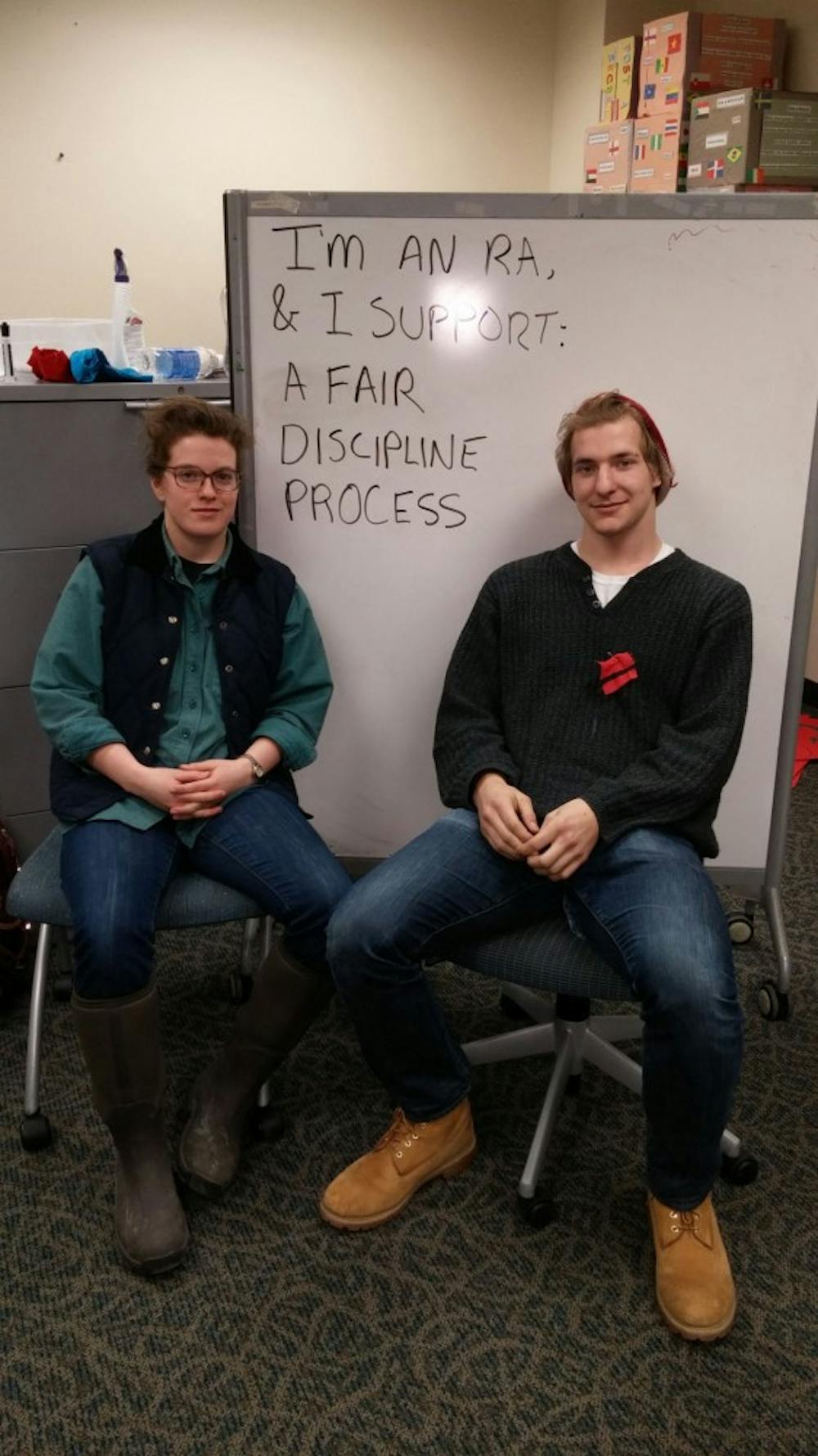The Residential Assistants are trying to unionize and more than 100 have currently signed the membership cards.
Ohio University residential assistants are attempting to start their own union.
The RAs want three things: higher wages, a more concrete discipline process for RAs and more say in the placement and rehire process, said Jessica Lindner, an RA in Armbruster who is spearheading the unionization.
“All of these … amount to fair treatment in our job; they’re all pretty reasonable requests,” Lindner said. “We know from looking at housing’s budget that all of those are feasible.”
RAs live and work in the residence halls where they enforce university rules and provide support to residents.
In order to unionize, 60 percent of RAs need to sign membership cards that are then sent to the state, Lindner said.
“They work really long hours, and the university is saying that they work 20 hours a week, but anybody who lives in the Resident Halls know they work much more than that. Plus they are forced to work all of Halloween and on the weekends,” said David Logan, president of Local 1699 of the American Federation of State, County and Municipal Employees (AFSCME).
After the state labor board — Cincinnati Region 9 serves Athens — receives the number of member cards, the board holds an election within the workplace to determine whether employees want to unionize.
The RAs want to have the election by the end of spring semester.
As of Feb. 16, about 100 RAs have signed membership cards, Lindner said. OU has 222 RAs and 34 senior and administrative RAs on campus this academic year.
RAs work around 20 hours per week and 16 weeks a semester. This year, they are being paid between $12.85 and $16.21 per hour, depending on their level of experience. Next year, the compensation will increase to between $14.71 and $17.91. Both ranges of numbers factor in the amount RAs are given for room and board.
That means next year, RAs will be getting a raise of at least $1,000.
OU will also be increasing its number of RAs next year, from 222 to 271, according to university data.
“We appreciate the sentiment of the direction that we’re going. However, we believe that it’s certainly not enough,” Lindner said.
{{tncms-asset app="editorial" id="672f8c0c-b70b-11e4-ab1f-a33b4671c4d1"}}
Lindner, a senior studying environmental and plant biology, is spearheading the campaign to unionize the RAs. She has been an RA for three years and thinks RAs should be paid more, as it’s “disingenuous” to include room expense into the wage because they are required to live in the dorms, she said.
Earlier in the year, the RAs talked to Residential Housing, but it did not produce the desired results, Lindner said.
“That’s how we decided to pursue the union route,” Lindner said.
The RAs have not tried to reconcile the university with the union because they are two separate things, Lindner said.
“This student effort has only recently begun to take shape on campus, and to date, no requests or proposals regarding such an initiative have been made to the University,” Katie Quaranta, OU spokeswoman, said in an email.
The RAs are trying to unionize with American Federation of State, County and Municipal Employees, AFSCME, which currently represents 558 university employees including those working at: Lausche Heating Plant, Alden Library and Central Food Facility run by Culinary Services.
“The university can be hesitant to recognize unions, but they have to come to negotiate,” Lindner said.
According to the Ohio University chapter of the American Association of University Professors website, OU-AAUP supports the right of resident assistants to organize.
“The right to bargain collectively should be respected by the administration and should be recognized as an expression of democratic citizenship,” the website reads. “We hope that the administration will not intervene or obstruct any attempts at unionization on the part of students at our university.”
Unionizing RAs is rare on college campuses. After an RA lost his job for missing a staff meeting, the RAs at University of Massachusetts-Amherst unionized in 2002.
“All these RAs are trying to join the union that’s already on campus because we really like our jobs and we’re super excited about it and we value it enough to want to have a say in it,” Lindner said.
-Dina Berliner contributed to this report.
@megankhenry
mh573113@ohio.edu






